COVID-19
Peckford, Bernier take travel restrictions to Supreme Court of Canada
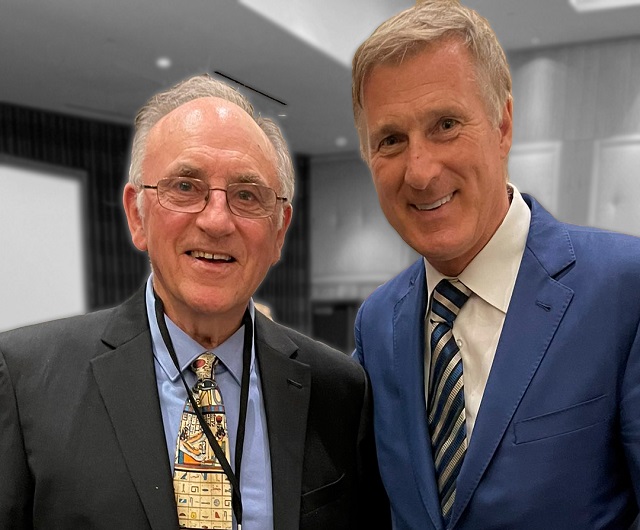
News release from the Justice Centre for Constitutional Freedoms
The Justice Centre announces that the Honourable Brian Peckford, the Honourable Maxime Bernier, and other applicants seek to appeal their vaccine mandate challenge to the Supreme Court of Canada. These Applicants argue that vaccine mandates are an issue of national importance and that Canadians deserve to receive court rulings regarding any emergency orders that violate the Canadian Charter of Rights and Freedoms.
In November 2021, the Government of Canada required all travelers of federally regulated transportation services (e.g., air, rail, and marine) to provide proof of Covid vaccination. These restrictions on the Charter freedom of mobility prevented approximately 5.2 million unvaccinated Canadians from traveling by air and rail.
In response to these restrictions, the Honourable Brian Peckford (last living signatory of the Charter and former Premier of Newfoundland), the Honourable Maxime Bernier (leader of the People’s Party of Canada), and other Canadians took the federal government to court in February 2022, arguing that the Charter freedoms of religion and conscience, assembly, democratic rights, mobility, security, privacy, and equality of Canadians were infringed by these restrictions. In addition, affidavits filed in this court action (e.g., the affidavit of Robert Belobaba at paragraph 19) attest that, in a country as large as Canada, prohibitions on domestic and international air travel have significant, negative impacts on Canadians.
In an affidavit (at paragraph 29), Jennifer Little, Director General of Covid Recovery at Transport Canada, provided her Covid Recovery Team’s October 2, 2021 presentation, entitled Implementing a Vaccine Mandate for the Transportation Sector. The presentation outlined options and considerations for the purposes of seeking the Minister of Transport’s approval of the travel vaccination mandate. Her presentation outlined (at pages 12 and 13) that the Canadian travel restrictions in question were “unique in the world in terms of strict vaccine mandate for domestic travel” and were coupled with “one of the strongest vaccination mandates for travelers in the world.” She admitted during cross examination (at paragraphs 162-163, PDF page 61) that she had never seen a recommendation from Health Canada or the Public Health Agency of Canada to the Ministry of Transport to implement a mandatory vaccination policy for travel.
At the same time, Dr. Lisa Waddell, a senior epidemiologist and the knowledge synthesis team lead at the Public Health Agency of Canada, admitted during a cross examination (at paragraphs 300-305, PDF pages 91-93) that there was no recommendation from the Public Health Agency of Canada to impose vaccination requirements on travelers.
In June 2022, the Government of Canada announced that it would suspend the travel vaccine restrictions, but that it would not hesitate to reinstate the mandates if the government considered it necessary.
As a result, the federal government (the Crown) moved to have Premier Peckford’s constitutional challenge struck for mootness (irrelevance). The Crown argued that the travel restrictions were no longer a live issue because they had been lifted and should not, therefore, take up further court resources. The Crown brought this motion after each side had produced expert evidence, called on experts to testify under oath, cross-examined the other side’s experts and witnesses daily for six weeks, conducted significant legal research, and prepared substantive written arguments. Lawyers for both sides spent hundreds of hours placing all the evidence and legal arguments before the Federal Court for its consideration. The only remaining step in the trial process was the presentation of oral argument, scheduled for October 31, 2022. The Federal Court was fully and properly equipped to render a thoughtful decision as to whether the travel restrictions had been a justified violation of Charterfreedoms.
Even though the federal government can impose these same travel restrictions on Canadians again, without notice, the Federal Court granted the Crown’s motion on November 9, 2023, and dismissed this Charter challenge as moot. The Federal Court of Appeal affirmed this lower court ruling on November 9, 2023. Effectively, the courts determined that a constitutional challenge to the use of unprecedented emergency powers was neither sufficiently interesting to the Canadian public nor an appropriate use of court resources.
Premier Peckford, Maxime Bernier, and other Canadians now seek to have the Supreme Court of Canada hear their case. This involves a two-step process, whereby the applicants first ask whether the Court is willing to hear the appeal. If so, the appeal will then be scheduled for a hearing several months later. The applicants in this case argue that the issues raised in their case are of national importance and that Canadians deserve access to court rulings about policies that violate the Charter freedoms of millions of Canadians.
(See the January 8, 2024 Leave Application of Premier Peckford here. See the January 8, 2024 Leave Application of Maxime Bernier here.)
Further, Premier Peckford and the other applicants warn that all challenges to emergency orders risk being deemed irrelevant due to the simple fact that emergency orders are normally implemented only for short periods of time. In most cases, emergency orders will be rescinded by the time a constitutional challenge makes its way through the court process and all the relevant evidence, along with legal arguments, has been put before the judge. For this reason, the Applicants argue that the courts should provide guidance on how emergency orders should be handled in the context of the mootness doctrine.
“If courts are going to affirm and uphold emergency orders that violate our Charter rights and freedoms whenever the emergency order is no longer in force, how can the Charter protect Canadians from government abuses?” asks John Carpay, President of the Justice Centre.
Emergency orders are not debated in, or approved by, federal Parliament or provincial legislatures. Rather, they are discussed confidentially in Cabinet such that ordinary Canadians are prevented from understanding the reasons for, or the legality of, emergency orders, such as mandatory vaccination policies that discriminated against Canadians who chose not to get injected. Therefore, it is only through court rulings that Canadians can learn whether a mandate or emergency order is constitutional.
“The Supreme Court of Canada has an opportunity to create an important precedent for how Canadian courts deal with all so-called ‘moot’ cases involving questions about the constitutionality of emergency orders,” stated lawyer Allison Pejovic, who represents Premier Peckford and Maxime Bernier.
“The public interest in this case is staggering. Canadians need to know whether it is lawful for the federal government to prevent them from travelling across Canada, or from leaving and re-entering their own country, based upon whether they have taken a novel medication,” continued Ms. Pejovic.
“The Court’s dismissal of constitutional challenges to Covid orders for ‘mootness’ has deprived thousands of Canadians from knowing whether their governments’ emergency orders were lawful or not. It is time for the Supreme Court of Canada to expand the legal test for mootness to account for governments’ use of emergency orders, which are devoid of transparency and accountability. Canadians have a right to know whether unprecedented mandatory vaccination policies, which turned millions of Canadians into second-class citizens, were valid under our Constitution,” concluded Ms. Pejovic.
COVID-19
Elon Musk-backed doctor critical of COVID response vows appeal after court sides with medical board
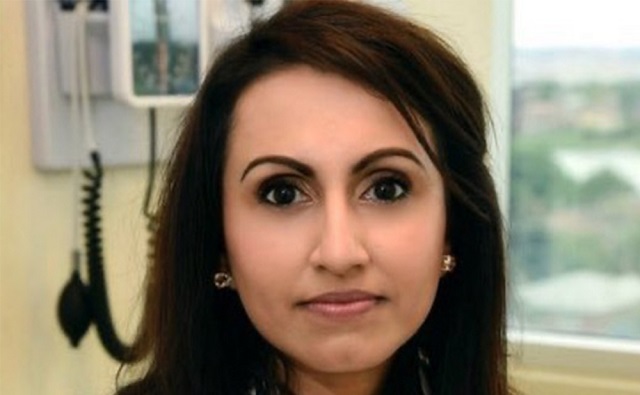
From LifeSiteNews
One of Gill’s “controversial” posts read, “If you have not yet figured out that we don’t need a vaccine, you are not paying attention. ”
A Canadian physician who challenged her medical regulator after it placed “cautions” against her for speaking out against draconian COVID mandates on social media has lost a court battle, but with the help of her Elon Musk-backed legal team she has vowed to appeal the ruling.
The case concerns Dr. Kulvinder Kaur Gill, an Ontario pediatrician who has been embroiled in a legal battle with the College of Physicians and Surgeons of Ontario (CPSO) for her anti-COVID views posted on X (formerly Twitter) in 2020. As reported by LifeSiteNews, her case received the support of billionaire Tesla and X owner Elon Musk, who pledged in March to back her financially.
One of Gill’s “controversial” posts read, “If you have not yet figured out that we don’t need a vaccine, you are not paying attention. #FactsNotFear.”
The Divisional Court decision against Gill dated May 7, 2024, concluded, “When the College chose to draw the line at those tweets which it found contained misinformation, it did so in a way which reasonably balanced Dr. Gill’s free speech rights with her professional responsibilities.”
“In other words, its response was proportionate,” noted the ruling.
Gill’s lawyer, Lisa Bildy with Libertas Law, stated in a press release sent to LifeSiteNews that the “Court declined to quash the ‘cautions’ orders, finding that the ‘screening committee’ of the CPSO was sufficiently alert to the Charter infringement of Dr. Gill’s speech, such that its decisions were within the range of reasonable outcomes.”
“Dr. Gill had argued, in two factums,” noted Bildy, which can be found here and here , and filed in the companion court applications, that “her statements were not ‘verifiably false.’”
Bildy expressed that Gill had provided the College with “ample evidence in 2020 to support her position against lockdowns,” but was sanctioned “because they went against the College’s guidance that doctors should not express opinions contradicting government or its public health edicts.”
Gill’s court challenge against the CPSO began last month, with Bildy writing at the time that the College’s “decisions were neither reasonable nor justified and they failed to engage with the central issues for which Dr. Gill was being cautioned.”
She argued that Gill had a “reasonable scientific basis” for her posts, noting that the previous decision made against Gill targeted her for opposing the mainstream COVID narrative.
“The decision starts with the premise that doctors have to comply,” said Bildy, warning that censoring doctors would have a “chilling effect” on free speech.
Bildy noted that in its ruling, the court “disagreed” with Gill’s challenge, “stating that this invited a reweighing of the evidence.”
The court also ordered that Gill pay the CPSO $6,000 in legal costs.
Gill is a specialist practicing in the Greater Toronto area, and has extensive experience and training in “pediatrics, and allergy and clinical immunology, including scientific research in microbiology, virology and vaccinology.”
Last September, disciplinary proceedings against her were withdrawn by the CPSO. However, last year, Gill was ordered to pay $1 million in legal costs after her libel suit was struck down.
The CPSO began disciplinary investigations against Gill in August 2020.
Gill to appeal recent court ruling with support from Musk’s X
The court’s ruling asserted that the CPSO panel members consisted of “three physicians with highly relevant expertise that they were able to bring to bear when assessing the scientific and medical information before them, expertise that this court does not have.”
Bildy noted that in fact, the CPSO panel consisted of “three surgeons and a general member of the public who had deferred to the ‘expertise’ of government’s public health arm.”
The court ruling also dismissed Gill’s arguments that publishing the “cautions on her public register and disseminating a notice about the cautions to hospitals and regulators across the continent was punitive and had a chilling effect on one side of a debate.”
“The Court opted to align with other Divisional Court decisions in stating that the cautions were not a finding of professional misconduct but were merely a remedial measure. This is despite the fact that cautions have, only in recent years, become a public rebuke rather than a private ‘correction’ of a professional by their peers. This significant change has not yet been grappled with by the Ontario Court of Appeal,” noted Bildy.
Bildy said that Gill intends to “seek leave to appeal to the Ontario Court of Appeal with the support of X Corp., since her posts were made on the X platform which supports free expression and dialogue, even on contentious issues and particularly on matters of scientific and medical importance.”
Gill noted on X Tuesday that her “notice of motion for leave to appeal will be filed” next week “to begin process.”
She also thanked Musk and X for supporting her legal cause.
Gill had said that she had “suddenly” found herself going “against the narrative,” and was then “seen as a black sheep and as someone who should be shunned.”
Many Canadian doctors who spoke out against COVID mandates and the experimental mRNA injections have been censured by their medical boards.
Earlier this month, Elon Musk’s X announced that it will fund the legal battle for another Canadian doctor critical of COVID lockdowns, Dr. Matthew Strauss, an Ontario critical care physician and professor, against his former employer Queen’s University after it forced him to resign.
In an interview with LifeSiteNews at its annual general meeting in July 2023 near Toronto, canceled doctors Mary O’Connor, Mark Trozzi, Chris Shoemaker, and Byram Bridle were asked to state their messages to the medical community regarding how they have had to fight censure because they have opinions contrary to the COVID mainstream narrative.
COVID-19
Healthcare workers obtain partial win against Bonnie Henry in BC Supreme Court
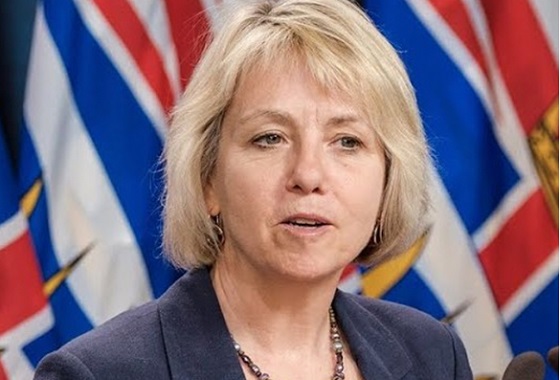
News release from the Justice Centre for Constitutional Freedoms
The Justice Centre for Constitutional Freedoms is pleased to announce that the British Columbia Supreme Court has remitted back to the provincial health officer the issue of whether remote working and administrative health care workers must take the Covid vaccine as a condition of being able to work in a health care system that the BC government claims is grossly understaffed.
While the Justice Centre is disappointed that the court upheld the Covid vaccine mandate on BC healthcare workers, this decision is viewed as a substantial win for those remote-working and administrative healthcare workers who lost their jobs due to an unfair Covid vaccine mandate and other Health Orders put in place by BC provincial health officer Bonnie Henry, starting in November 2021. The court’s decision was released on Friday, May 10, 2024, by Justice Simon Coval in Vancouver.
The Justice Centre provided for lawyers to represent the healthcare workers, who filed their Petition to the Court on March 16, 2022. Oral arguments were presented November 20 to December 1, 2023, and December 18 to December 21, 2023. The petitioners argued that the orders violated their Charter rights, section 2(a) freedom of conscience and religion, section 7 right to life, liberty and security of the person, and section 15 equality rights.
The case is formally known as Tatlock, Koop, et al. v. BC and Dr. Bonnie Henry. More background is available at this link.
Charlene Le Beau, co-counsel for the petitioners, says, “This case was a Judicial Review, which means the court had to determine whether Dr. Bonnie Henry acted reasonably in making the Covid vaccine a condition of employment. We are disappointed with the court finding that Dr. Henry acted reasonably, but pleased with the court also finding that the application of the Orders to remote-working and administrative workers went too far. As a result, the court remitted the issue back to Dr. Henry so that, in light of the reasons for judgment, she can consider whether to accept requests for exemption to the vaccine for those groups of workers. This is a positive result for BC nurses, doctors and other health care workers.”
-
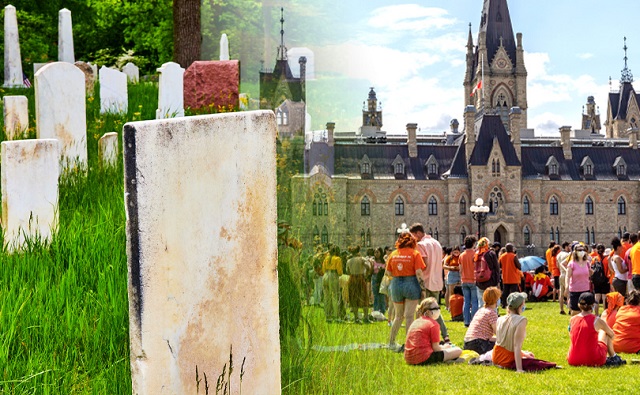
 National2 days ago
National2 days agoDespite claims of 215 ‘unmarked graves,’ no bodies have been found at Canadian residential school
-

 Brownstone Institute2 days ago
Brownstone Institute2 days agoThe WHO’s Proposed Pandemic Agreements Worsen Public Health
-
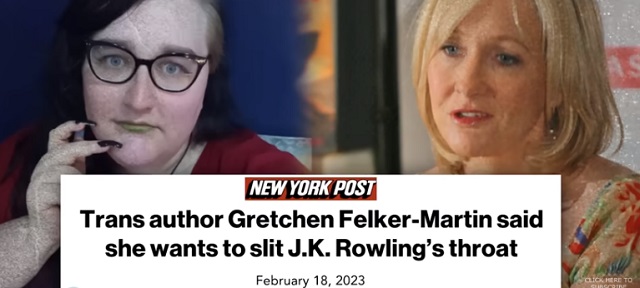
 John Stossel1 day ago
John Stossel1 day agoProtecting Free Speech: The Early Warning Signs From Around The World
-

 armed forces1 day ago
armed forces1 day agoTrudeau government has spent $10 million promoting DEI in the military as recruitment flounders
-
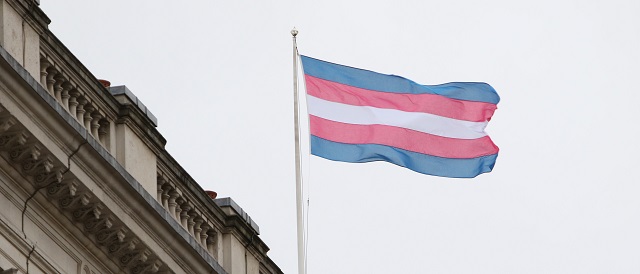
 Health1 day ago
Health1 day agoTHE WPATH TAPES: Behind-The-Scenes Recordings Reveal What Top Gender Doctors Really Think About Sex Change Procedures
-

 COVID-191 day ago
COVID-191 day agoTrudeau’s public health agency recommends another experimental COVID booster
-
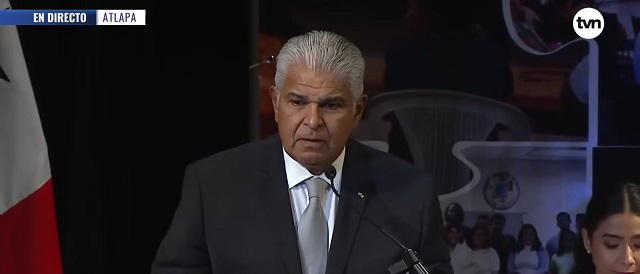
 illegal immigration2 days ago
illegal immigration2 days agoPanama’s Incoming President Wants To Shut Down His Country’s Most Treacherous Route For Migrants — But Will It Work?
-
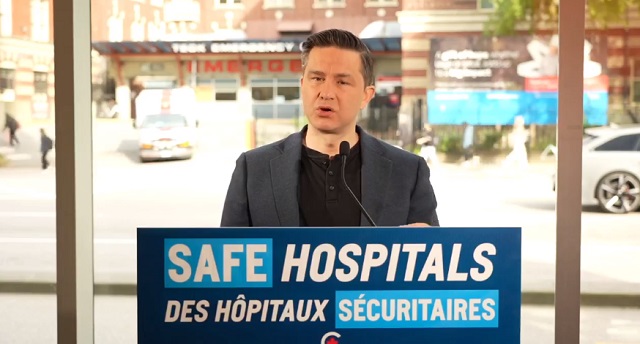
 Addictions1 day ago
Addictions1 day agoPoilievre attacks decriminalization of hard drugs with Safe Hospitals Act






